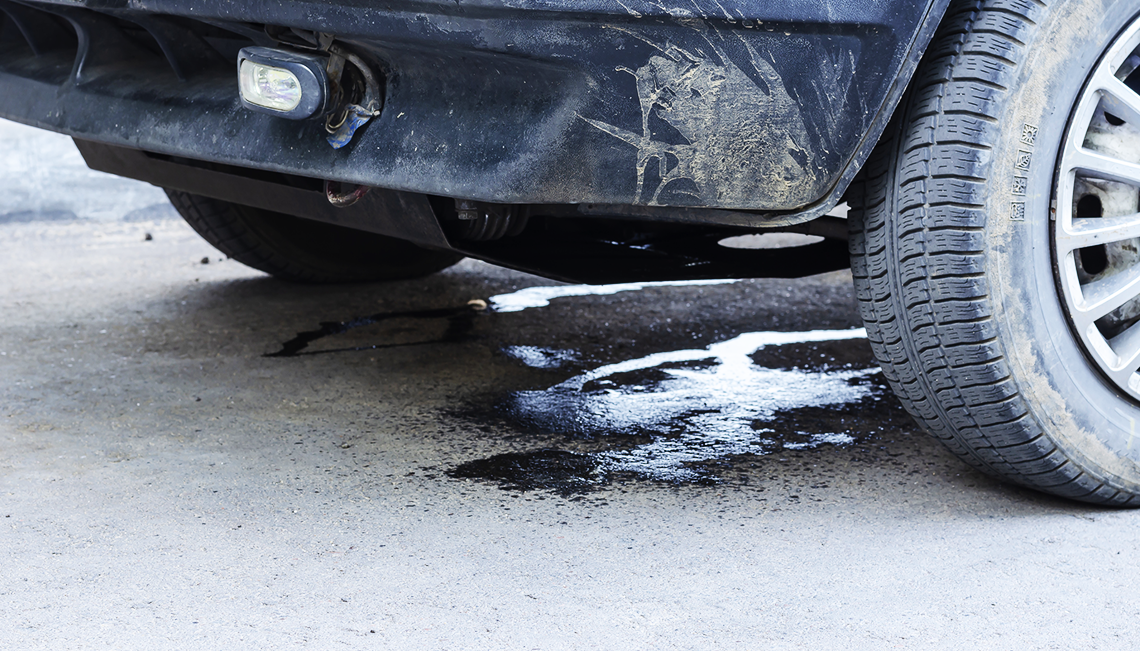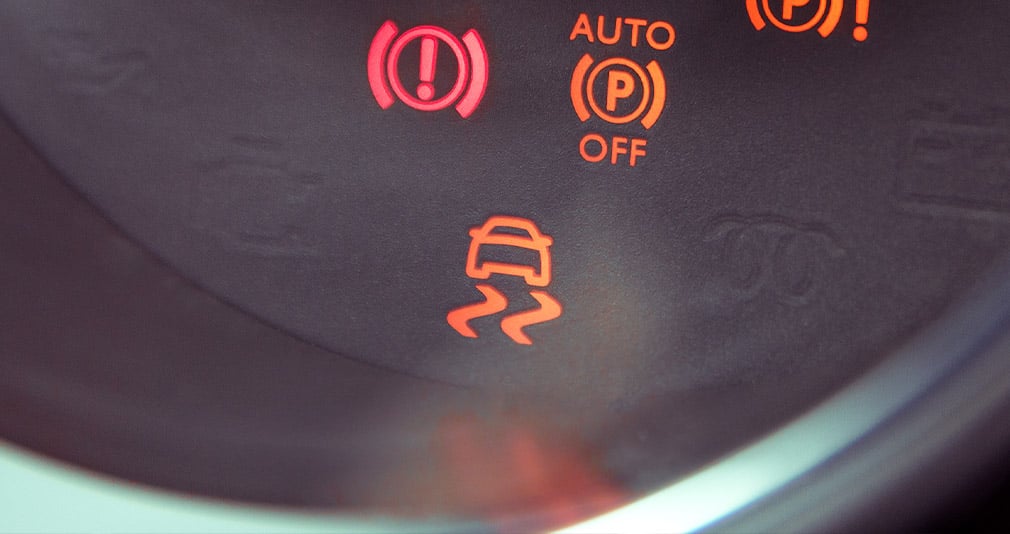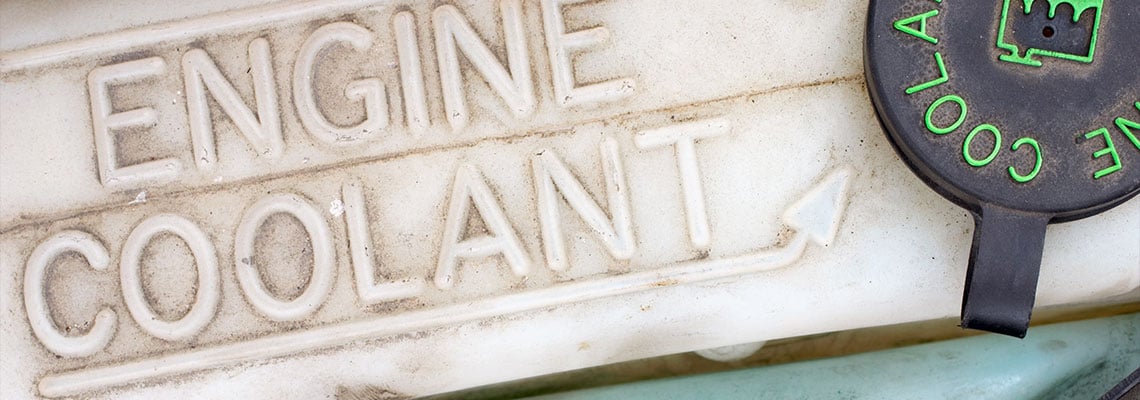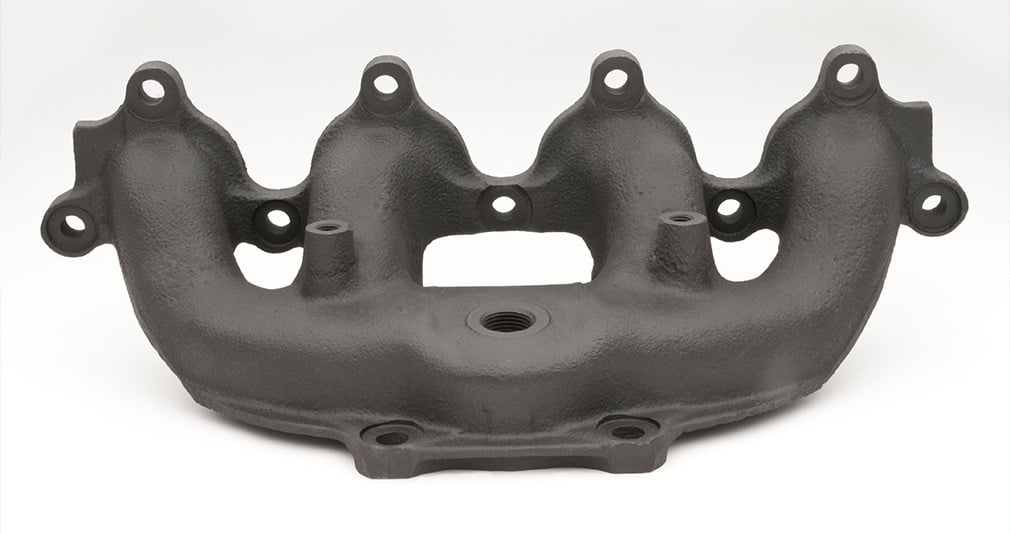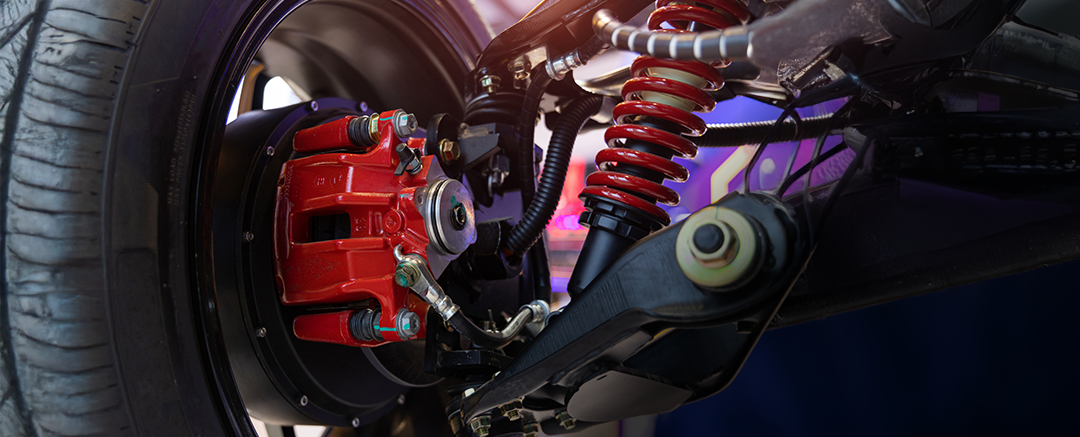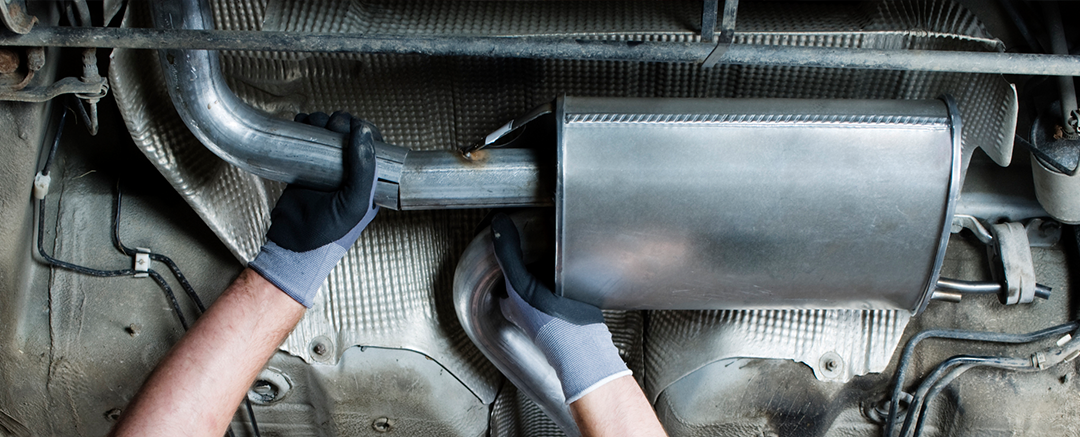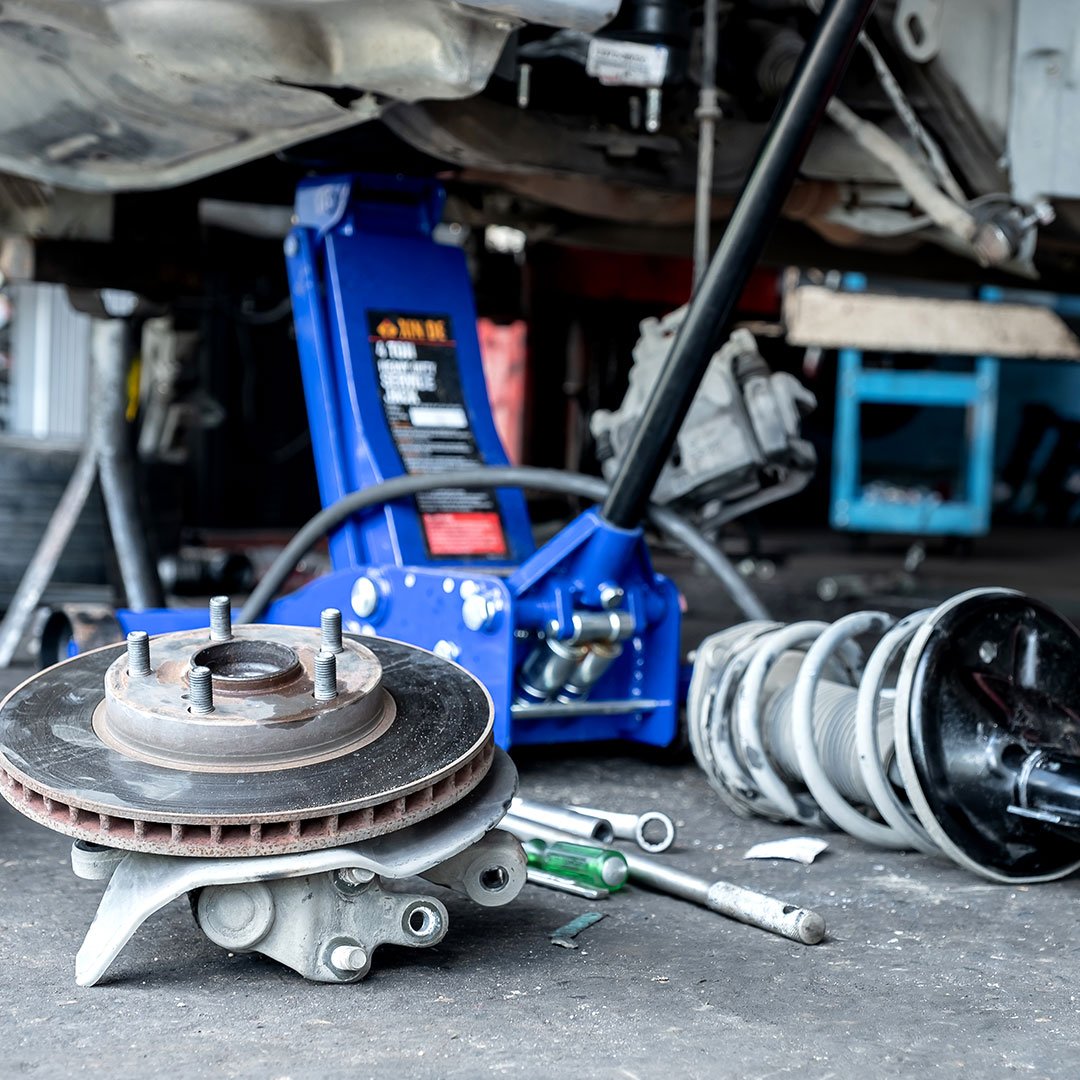No one wants to step out to their driveway to find a mysterious fluid leaking from the car when it’s parked. A leak doesn’t just leave an unsightly stain on your driveway, it can be a sign of more serious problems inside your vehicle. The longer you let the leak go without repair, the worse it will be, especially for a transmission fluid leak.
The transmission is an important part of your vehicle that supplies power from the engine to the wheels and gives you more control over where you’re going. But in order to function properly, the transmission needs plenty of liquid, known as transmission fluid, to keep this essential vehicle part lubricated and cool.
We’ve gathered eight reasons your transmission fluid may be leaking. With this guide, you can determine whether that liquid seeping out from under the car is transmission fluid, what could be causing the leak and what steps to take to get your vehicle fixed as quickly as possible (and avoid the hefty cost of replacing a failed transmission).
Signs You Have a Transmission Fluid Leak
A transmission fluid leak is pretty easy to identify, especially when your car is parked. One of the biggest signs of a transmission fluid leak is a dark red liquid underneath the car near the transmission, typically located close to the vehicle’s engine. But you may even be able to smell a leak, or you might notice issues when shifting if the transmission is low on fluid.
Some common signs of a transmission fluid leak include:
Thin, leaking fluid. The most obvious sign of a transmission fluid leak is a fluid leaking from your vehicle. But what color is a transmission fluid leak? If you drive a vehicle with an automatic transmission, you’ll notice a thin, red or light brown liquid leaking from the car. If your vehicle has a manual transmission, the fluid may appear almost clear in color, or it may be a lighter brown, similar to honey or amber.
Delayed shifting. The transmission helps you control the vehicle via shifting, so when the transmission isn’t lubricated properly because of a leak, you may notice issues with shifting. This could feel like a delay in shifting gears or even feel jerky when there’s a problem with the transmission.
Sweet smell. In addition to spotting fluid leaking from your car, you may notice a sweet or even tart smell around the vehicle. Unless you’ve left a bag of candy sitting in the cup holder on a hot day, this is often a sign that transmission fluid is leaking.
Burning chemical smell. If your car is in park but still running, and you have a major transmission leak, you may notice a burning chemical smell. The transmission fluid will burn when coming into contact with hot vehicle parts.
8 Causes of a Transmission Fluid Leak
You’re pretty certain that your car is leaking transmission fluid, but now you’re wondering, “Why is my car leaking transmission fluid?” and “Where does the transmission fluid leak from?”
Many potential problems can lead to a transmission fluid leak, which can leak from transmission lines, worn-out seals or gaskets, the torque converter or the drain plugs. With so many potential sources of a leak, it’s important to have a mechanic inspect the vehicle to find where the leak is coming from.
Some common causes of a transmission fluid leak when the car is parked include:
- Overheating
You head out for a road trip, spending all day driving. Then, when you arrive at your destination, you quickly notice a transmission fluid leak when parked. This is a common sign that the transmission has overheated from extensive use. When it overheats, it can cause the transmission seals to become loose and leak liquid.
- Worn-out pan and gasket
The transmission pan and gasket are the home of the transmission fluid, so many times, a leak happens when the pan is damaged or the gasket wears out. If the pan wears out or becomes bent from improper installation, it will need to be replaced to stop the leak and prevent ongoing leaks.
- Damaged cooler lines
Lines run from the transmission to its cooler to cool down hot transmission fluid. Over time, these lines can naturally degrade, eventually cracking and leading to a transmission fluid leak. Transmission lines usually last about 100,000 to 150,000 miles, but regular vehicle inspections will help catch any deteriorating lines before they cause a leak.
- Warped or broken seals
Transmissions have many seals that need to be neither too loose nor too tight to keep the transmission fluid from leaking. A worn-out or hardened fill tube seal, output shaft seal, front pump seal, or any other seal can cause the transmission fluid to leak when parked. An overly tight seal can also crack, causing a leak.
- Dirty fluid
You know to change your oil regularly and flush the coolant every few years, but did you know you should change the transmission fluid regularly, too? Dirty transmission fluid can cause clogs in the lines, ultimately leading to cracks and leaks.
You should have your transmission fluid changed about every 30,000 to 60,000 miles for manual transmissions or every 60,000 to 100,000 miles for automatic transmissions. To check the purity of your transmission fluid, wipe the transmission dipstick on a clean paper towel. It should be pink or a brighter red when it’s in good condition. It will be darker red, brown or black when it needs to be changed.
- Damaged torque converter
In automatic transmissions, the torque converter helps move power from the engine to the transmission. That means the torque converter often holds a lot of transmission fluid at once, so if it is damaged, that fluid can leak. Transmission fluid may leak if the torque converter cracks or the front pump seal wears out.
- Loose or over tightened drain plug
The drain plug is in the transmission pan, and mechanics use this plug to change the transmission fluid. If the drain plug is too loose or overtightened, the transmission fluid will leak out of the pan. An old drain plug seal can also cause a leak, so this seal should be replaced each time the transmission fluid is changed.
- Cracked transmission housing
The transmission housing is the part that encases the entire transmission system, so if it cracks, transmission fluid can leak. This is a more extensive problem that will typically mean you need to replace the entire transmission.
Notice a Leak? Come In For a Repair ASAP
When you notice the signs of a transmission fluid leak, you won’t be able to stop the leak until you determine the cause. Because this fluid can leak for a number of different reasons, it’s best to take your vehicle to a trusted auto shop as soon as possible. If you wait too long, your transmission will become damaged, and it could even fail. Your skilled mechanic will need to raise the car and inspect for the cause of the leak. Then, they can swiftly make repairs or replace faulty parts so you can get back on the road safely and save money on replacing a failed transmission.

